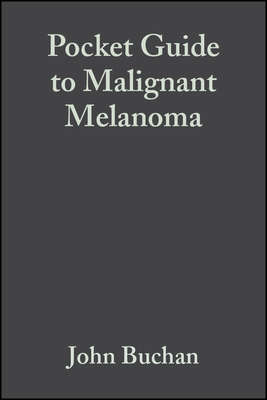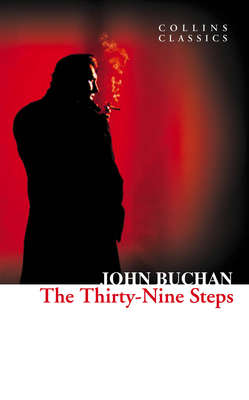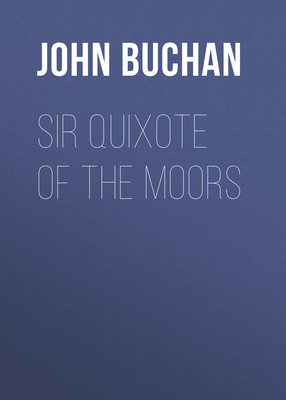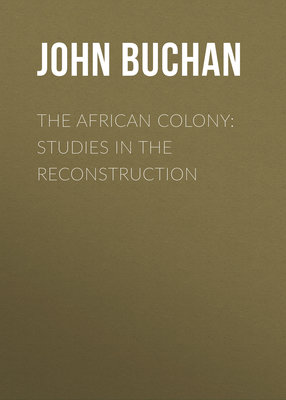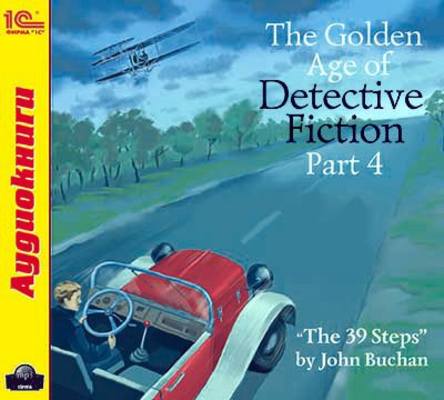Kitabı oku: «John Burnet of Barns: A Romance», sayfa 9
CHAPTER VI
THE FIRST MONDAY OF MARCH
Nicol wakened me before dawn and I made haste to get ready. I looked to see that my sword was in fit condition, for it was a stout cut-and-thrust blade of the kind which speedily takes the rust. Then having taken a draught of strong ale to brace my nerves for the encounter, I left the house and set off with my servant for the college gardens.
The morning was clear and fresh. The sun had not yet fully arisen, but it was light enough to see two hundred yards before me. A sharp wind fluttered my cloak, and sent a thrill of strength through me, for it minded me of the hill breezes which were wont to blow on the heights of Scrape. There was scarce anyone stirring save a few drowsy burghers whom it behoved to be attending to their business in the early morn. I kept my cloak well over my face, for I did not relish the notion of being recognised by anyone on my errand.
Now, from the college gardens there stretches down to the great canal a most beautiful pleasaunce, all set with flower beds and fountains. Beyond this, again, is a more rugged land – a grove with great patches of grass in it, and here it was that gentlemen of the Scots regiment were wont to settle their differences. The morning had been chosen as the time when it was less likely that some interloping busybody might interrupt us.
I cannot tell how I felt as I walked through the cool morning air among the young herbs and trees which still bore the dew upon them. It minded me so keenly of the mornings at home in Tweeddale, when I was used to rise before daylight and go far up Tweed with my rod, and bring back, if my luck were good, great baskets of trout. Now I was bound on a different errand. It was even possible that I might see my own land no more. But this thought I dismissed as unworthy of one who would be thought a cavalier.
In time we came to the spot which the others had fixed on. There I found my men already waiting me; my cousin stripped to his sark and small-clothes, with his blade glimmering as he felt its edge; his companions muffled up in heavy cloaks and keeping guard over Gilbert's stripped garments. They greeted me shortly as I came up, so without more ado I took off my coat and vest, and gave them into my servant's keeping. Then going up co my opponent I took his hand.
"Let there be no malice between us, Gilbert," said I. "I was rash maybe, but I am here to give account of my rashness."
"So be it, cousin," he said, as he took my hand coldly.
We both stepped back a pace and crossed swords, and in a trice we had fallen to.
My first thought, and I am not ashamed to confess it, when I felt my steel meet the steel of my foe, was one of arrant and tumultuous fear. I had never before crossed swords with anyone in deadly hatred; and in my case the thing was the harder, for the feeling against my cousin was not so violent a passion as to make me heedless of aught else. Before me, behind the back of my antagonist, the thick underwood was already filled with the twittering of birds, and a great feeling of longing came upon me to get well through with the affair and escape death. For now a feeling which I had not reckoned with came to oppress me – the fear of death. Had my wits been more about me, I might have reflected that my cousin was too good a swordsman to kill me and lay himself open to many penalties. But my mind was in such a confusion that I could think of naught but an overwhelming danger.
Howbeit, in a little this fit passed, and once more I was myself. Gilbert, for what reason I know not, fenced swiftly and violently. Blow came upon blow till I scarce could keep my breath. I fell at once upon the defensive, and hazarded never a cut, but set all my powers to preserving my skin. And in truth this was no easy task, for he had acquired a villainous trick of passing suddenly from the leg-cut to the head-stroke, so that more than once I came not up to guard in time and had his sword almost among my hair. I could not guess what he meant by this strategy, for I had ever believed that a man who began in a hot-fit ended in a languor. He sought, I doubt not, to speedily put an end to the encounter by putting forth his greater strength, hoping to beat down my guard or bewilder me with the multiplicity of his flourishes.
Now this conduct of my opponent had an effect the very counter of what he proposed. I became completely at my ease; indeed, I swear I never felt more cool in my life. This has ever been the way with me, for I have always been at my best in the extremest perils. Oftentimes when things went very sore with me, I was at a loss and saw no way of escape; but let them get a little worse and I was ready to meet them. So now I was on the watch to frustrate every moment, and since no man can fight rapidly and fight well, I kept him at bay till he deemed it prudent to give up this method.
But now when he came down to slow, skilful fence I found my real danger. We were well matched, as had been proved in many a harmless encounter on the turf by the Tweed. I was something lighter, he somewhat stronger in the arm and firmer in the body; but taking us all in all we were as equal a pair as ever crossed swords. And now there was an utter silence; even the birds on the trees seemed to have ceased. The others no longer talked. The sharp clatter and ring of the swords had gone, and in its place was a deadly swish – swish, which every man who has heard it dreads, for it means that each stroke grazes the vitals. I would have given much in that hour for another inch to my arm. I put forth all my skill of fence. All that I had learned from Tam Todd, all that I had found out by my own wits was present to me; but try as I would, and I warrant you I tried my utmost, I could not overreach my opponent. Yet I fenced steadily, and if I made no progress, I did not yield my ground.
With Gilbert the case was otherwise. His play was the most brilliant I had ever seen, full of fantastic feints and flourishes such as is the French fashion. But I could not think that a man could last for ever in this style, since for one stroke of my arm there were two of his and much leaping from place to place. But beyond doubt he pressed me close. Again and again I felt his steel slipping under my guard, and it was only by a violent parry that I escaped. One stroke had cut open my sleeve and grazed my arm, but beyond this no one of us had suffered hurt.
But soon a thing which I had scarcely foreseen began to daunt me. I was placed facing the east, and the rising sun began to catch my eyes. The ground was my own choosing, so my ill-luck was my own and no fault of Gilbert's. But it soon began to interfere heavily with my play. I could only stand on guard. I dared not risk a bold stroke, lest, my eyes being dazzled by the light, I should miscalculate the distance. I own I began to feel a spasm of fear. More than one of my opponent's strokes came within perilous nearness. The ground too was not firm, and my foot slid once and again when I tried to advance. To add to it all there was Gilbert's face above the point of the swords, cold, scornful, and triumphant. I began to feel incredibly weak about the small of the back, and I suppose my arm must have wavered, for in guarding a shoulder-cut I dropped my point, and my enemy's blade scratched my left arm just above the elbow. I staggered back with the shock of the blow, and my cousin had a moment's breathing-space. I was so obviously the loser in the game, that Gilbert grew merry at my expense.
"Well, John," he cried, "does't hurt thee? My arm is somewhat rougher than Marjory's."
There seems little enough in the words, yet I cannot tell how that taunt angered me. In the mouth of another I had not minded it, but I had a way of growing hot whenever I thought of my cousin and my lady in the same minute of time. It called to my mind a flood of bitter memories. In this encounter, at any rate, it was the saving of me. Once more I was myself, and now I had that overmastering passionate hate which I lacked before. When I crossed swords again I felt no doubt of the issue and desired only to hasten it. He on his part must have seen something in my eyes which he did not like, for he ceased his flourishes and fell on defence.
Then it was that the real combat of the day commenced. Before it had been little more than a trial of skill, now it was a deadly and determined battle. In my state of mind I would have killed my foe with a light heart, however much I might have sorrowed for it after. And now he began to see the folly of his conduct in the fore-part of the fight. I was still fresh and stout of arm; he was a little weary and his self-confidence a little gone.
"By God, Gilbert, you will eat your words," I cried, and had at him with might and main.
I fenced as I had never fenced before, not rashly, but persistently, fiercely, cunningly. Every attempt of his I met and foiled. Again and again I was within an ace of putting an end to the thing, but for some trifling obstacle which hindered me. He now fought sullenly, with fear in his eyes, for he knew not what I purposed concerning him. I warrant he rued his taunt a hundred times in those brief minutes.
At last my opportunity came. He made a desperate lunge forward, swung half round and exposed his right arm. I thrust skilfully and true. Straight through cloth and skin went my blade, and almost ere I knew I had spitted him clean through the arm just above the elbow. The sword dropped from his helpless hand.
I had put forth too much strength, for as he stumbled back with the shock of the wound I could not check my course, but staggered heavily against him and together we rolled on the ground.
In a second I was on my feet and had drawn out my weapon. With lowered point I awaited his rising, for he was now powerless to continue.
"Well," said I, "have you had satisfaction?"
He rose to his feet with an ugly smile. "Sufficient for the present, cousin John," said he. "I own you have got the better of me this time. Hi, Stephen, will you lend me a kerchief to bind this cursed wound?"
One of his companions came up and saw to his wants. I made to go away, for there was no further need of my presence, but my cousin called me back.
"Farewell, John," he said. "Let us not part in anger, as before. Parting in anger, they say, means meeting in friendship. And, 'faith, I would rather part from you in all love and meet you next in wrath."
"Farewell," I said carelessly as I departed, though I was amazed to hear a man with a pierced arm speak so lightly. Courage was not a quality which my cousin had to seek. So I left him in high good humour with myself, much pleased at my own prowess, and sensible that all immediate annoyance from that quarter was at an end.
Little man knows what God hath prepared for him. Had it not been for his defeat, Gilbert had not left Holland, and my greater misfortunes had never happened. And yet at that hour I rejoiced that I had rid myself of a torment.
Nicol was awaiting me, and soon I was arrayed in my coat once more, for the air was shrewdly cold. My servant was pale as I had never seen him before, and it was clear that he had watched the combat with much foreboding.
"Eh, Maister John," he cried, "ye're a braw fechter. I never likit ye half as weel. I thocht a' was up whiles, but ye aye cam to yoursel' as sprig as a wull-cat. Ye're maybe a wee thing weak i' the heid-cuts, though," he added. "I'll hae to see to ye. It's no what ye micht ca' profitable to be aye proddin' a man in the wame, for ye may prick him a' ower and him no muckle the waur. But a guid cleavin' slash on the harns is maist judeecious. It wad kill a stirk."
It was still early and we had breakfasted sparely, so we sought a tavern of good repute, The Three Crows, and made a hearty meal, washing it down with the best Rhenish. I was so mightily pleased with my victory, like a child with its toy, that I held my head a full inch higher, and would yield the causeway to no man. I do believe if M. Balagny or the great Lord Herbert had challenged me I would not have refused.
Some three days later I had sure tidings that my cousin had sailed for Leith and was thought to have no design of returning.
CHAPTER VII
I SPEND MY DAYS IN IDLENESS
Summer came on the heels of spring, and the little strip of garden below my windows grew gay as the frock of a burgher's wife on a Sunday. There were great lines of tulips, purple and red and yellow, stately as kings, erect as a line of soldiers, which extended down the long border nigh to the edge of the water. The lawn was green and well trimmed and shaded by the orderly trees. It was pleasant to sit here in the evenings, when Nicol would bring out the supper-table to the grass, and we would drink our evening ale while the sun was making all the canal a strip of beaten gold. Many folk used to come of an evening, some of them come to the university on the same errand as myself, others, Scots gentlemen out of place and out of pocket, who sought to remedy both evils by paying court to the Stadtholder. Then we would talk of our own land and tell tales and crack jests till the garden rang with laughter. I could well wish those times back, if I could bring with them the forte latus, nigros angusta fronte capillos, dulce loqui, ridere decorum. But fie on me for such discontent! Hath not God given good gifts for age as well as youth – aye, perhaps in greater abundance?
I pursued my studies in the ancient literatures and philosophy with much diligence and profit. Nevertheless, there was much to turn my attention, and I doubt if I did not find the folk around me the more diverting objects of study. I lived in an air of theology and philosophy and statecraft, hearing discussions on these and kindred matters all the day long. There were many of my own countrymen in the place, who are notoriously the most contentious of mankind: so that I could scarcely walk down any street without hearing some violent disputation in my own tongue. As for the other people of the place, I found them both civil and hospitable.
The routine of my days was as regular as clockwork, for it was always part of my method to apportion my day equally among my duties. In the morning, immediately upon rising, I went to Master Sandvoort's lecture on the Latin tongue. Then I broke my fast in the little tavern, The Gray Goose, just at the south entrance to the college. It was a clean, well-fitted place, where was found the fattest landlord and the best ale in Holland. Then at the hour of ten in the forenoon I went to listen to the eloquence of Master Quellinus. Having returned thence to my lodging I was wont to spend the time till dinner in study. Thereafter I walked in the town, or resorted to the houses of my friends, or read in the garden till maybe four o'clock, when it was my custom to go to the dwelling of Sir William Crichtoun (him whom I have spoken of before), and there, in the company of such Scots gentlemen as pleaded to come, to pass the time very pleasantly. From these meetings I had vast profit, for I learned something of the conduct of affairs and the ways of the world, in the knowledge of which I had still much to seek. Then home once more to study, and then to bed with a clear conscience and great drowsiness.
But there were several incidents which befell during this time, and which served to break the monotony of my life, which merit the telling. Firstly, towards the end of September who should come to visit me but my kinsman, Gilbert Burnet of Salisbury, a scholar shrewd and profound, a gentleman of excellent parts, and the devoutest Christian it has ever been my lot to fall in with. He was just returning from his journey to Italy, whereof he has written in his work, "Some Letters to T.H.R.B. Concerning his Travels in Italy and Holland." It was one afternoon as I sat in the arbour that Nicol came across the green followed by an elderly man of grave and comely appearance. It was to my great joy that I recognised my kinsman. He had alighted in Leyden that morning and proposed to abide there some days. I would have it that he should put up at my lodgings, and thither he came after many entreaties. During his stay in the city he visited many of the greater folk, for his fame had already gone abroad, and he was welcome everywhere. He was a man of delightful converse, for had he not travelled in many lands and mixed with the most famous? He questioned me as to my progress in letters and declared himself more than satisfied. "For, John," said he, "I have met many who had greater knowledge, but none of a more refined taste and excellent judgment. Did you decide on the profession of a scholar I think I could promise you a singular success. But indeed it is absurd to think of it, for you, as I take it, are a Burnet and a man of action and one never to be satisfied with a life of study. I counsel you not to tarry too long in this foreign land, for your country hath sore need of men like you in her present distress." Then he fell to questioning me as to my opinions on matters political and religious. I told him that I was for the church and the king to the death, but that I held that the one would be the better of a little moderation in its course, and that the other had fallen into indifferent hands. I told him that it grieved my heart to hear of my own countrymen pursued like partridges on the mountains by some blackguard soldiers, and that when I did return, while deeming it my duty to take the part of the king in all things, I would also think it right to hinder to the best of my power the persecution. In this matter he applauded me. It pained him more than he could tell, said he, to think that the church of his own land was in such an ill condition that it did not trust its friends. "What in Heaven's name is all this pother?" he cried. "Is a man to suffer because he thinks one way of worshipping his God better than another? Rather let us rejoice when he worships Him at all, whether it be at a dyke-side or in the King's Chapel." And indeed in this matter he was of my own way of thinking. When finally he took his leave it was to my great regret, for I found him a man of kindly and sober counsels.
Yet his visit had one result which I had little dreamed of, for it led me to show greater friendliness to such of the Scots covenanters as were refugees in the town. I learned something of their real godliness and courage, and was enabled to do them many little services. In particular, such letters as they wished to write to their friends at home I transmitted under my own name and seal, since all communication with Holland was highly suspected unless from a man of approved loyalty.
The other matter which I think worth noting was the acquaintance I formed with a Frenchman, one M. de Rohaine, a gentleman of birth, who was in great poverty and abode in a mean street off the Garen Markt. The way in which I first met him was curious. I was coming home late one evening from Master Swinton's house, and in passing through a little alley which leads from near the college to the Garen Markt, I was apprised of some disturbance by a loud noise of tumult. Pushing forward amid a crowd of apprentices and fellows of the baser sort, I saw a little man, maybe a tailor or cobbler from his appearance, with his back against a door and sore pressed by three ruffians, who kept crying out that now they would pay him for his miserly ways. The mob was clearly on their side, for it kept applauding whenever they struck or jostled him. I was just in the act of going forward to put an end to so unequal a combat, when a tall grave man thrust himself out of the throng and cried out in Dutch for them to let go. They answered with some taunt, and almost before I knew he had taken two of the three, one in either hand, and made their heads meet with a sounding crack. I was hugely delighted with the feat, and broke forward to offer my help, for it soon became clear that this champion would have to use all his wits to get out of the place. The three came at him swearing vehemently, and with evil looks in their eyes. He nodded to me as I took my stand at his side.
"Look after the red-beard, friend," he cried. "I will take the other two."
And then I found my hands full indeed, for my opponent was tough and active, and cared nothing for the rules of honourable warfare. In the end, however, my training got the mastery, and I pinked him very prettily in the right leg, and so put him out of the fight. Then I had time to turn to the others, and here I found my new-found comrade sore bested. He had an ugly cut in his forehead, whence a trickle of blood crawled over his face. But his foes were in a worse case still, and when word came at the moment that a body of the guard was coming they made off with all speed.
The man turned and offered me his hand,
"Let me thank you, sir, whoever you may be," said he. "I am the Sieur de Rohaine at your service."
"And I am Master John Burnet of Barns in Scotland," said I.
"What," he cried, "a Scot!" And nothing would serve him but that I must come with him to his lodging and join him at supper. For, as it seemed, he himself had just come from Scotland, and was full of memories of the land.
I found him a man according to my heart. When I spoke of his gallantry he but shrugged his shoulders. "Ah," said he, "it was ever my way to get into scrapes of that kind. Were I less ready to mix in others' business I had been a richer and happier man to-day," and he sighed.
From him I learned something more of the condition of my own land, and it was worse even than I had feared. M. de Rohaine had had many strange adventures in it, but he seemed to shrink from speaking of himself and his own affairs. There was in his eyes a look of fixed melancholy as of one who had encountered much sorrow in his time and had little hope for more happiness in the world. Yet withal he was so gracious and noble in presence that I felt I was in the company of a man indeed.
If I were to tell all the benefit I derived from this man I should fill a volume and never reach the end of my tale. Suffice it to say that from him I learned many of the tricks of sword play, so that soon I became as nigh perfect in the art as it was ever in my power to be. I learned too of other lands where he had been and wars which he had fought; and many tales which I have often told at home in Tweeddale I first heard from his lips. I was scarce ever out of his company, until one day he received a letter from a kinsman bidding him return on urgent necessity. He made his farewells to me with great regret, and on parting bade me count on his aid if I should ever need it. From that day to this I have never cast eyes on his face or heard tidings of him, but I herewith charge all folk of my family who may read this tale, if ever it be their fortune to meet with one of his name or race, that they befriend him to the best of their power, seeing that he did much kindness to me.
So the summer passed with one thing and another, till, ere I knew, winter was upon us. And I would have you know that winter in the Low Countries is very different from winter with us among the hills of Tweed. For here we have much mist and rain and a very great deal of snow; also the cold is of a kind hard to endure, since it is not of the masterful, overbearing kind, but raw and invidious. But there the frost begins in late autumn and keeps on well till early spring. Nor was there in my experience much haze or rain, but the weather throughout the months was dry and piercing. Little snow fell, beyond a sprinkling in the fore-end of January. Every stream and pond, every loch and canal was hard and fast with ice, and that of the purest blue colour and the keenest temper I have ever seen. All the townsfolk turned out to disport themselves on the frozen water, having their feet shod with runners of steel wherewith they performed the most wondrous feats of activity. The peasant-girls going to market with their farm produce were equipped with these same runners, and on them proceeded more quickly than if they had ridden on the highroad.
Often, too, during the winter, there were festivals on the ice, when the men arrayed in thick clothes and the women in their bravest furs came to amuse themselves at this pastime. I went once or twice as a spectator, and when I saw the ease and grace of the motion was straightway smitten with a monstrous desire to do likewise. So I bought a pair of runners and fitted them on my feet. I shall not dwell upon my immediate experiences, of which indeed I have no clear remembrance, having spent the better part of that afternoon on the back of my head in great bodily discomfort. But in time I made myself master of the art and soon was covering the ice as gaily as the best of them. I still remember the trick of the thing, and five years ago, when the floods in Tweed made a sea of the lower part of Manor valley, and the subsequent great frost made this sea as hard as the high-road, I buckled on my runners and had great diversion, to the country folks' amazement.
In all this time I had had many letters from Marjory, letters writ in a cheerful, pleasant tone, praying indeed for my return, but in no wise complaining of my absence. They were full of news of the folk of Tweedside, how Tam Todd was faring at Barns, and what sport her brother Michael was having in the haughlands among the wild-duck. I looked eagerly for the coming of those letters, for my heart was ever at Dawyck, and though I much enjoyed my sojourning in Holland, I was yet glad and willing for the time of departure to arrive. In January of the next year I received a bundle of news written in the gayest of spirits; but after that for three months and more I heard nothing. From this long silence I had much food for anxiety, for though I wrote, I am sure, some half-dozen times, no reply ever came. The uneasiness into which this put me cast something of a gloom over the latter part of the winter. I invented a hundred reasons to explain it. Marjory might be ill; the letters might have gone astray; perhaps she had naught to tell me. But I could not satisfy myself with these excuses, so I had e'en to wait the issue of events.
It was not till the month of April that I had news from my love, and what this was I shall hasten to tell.





